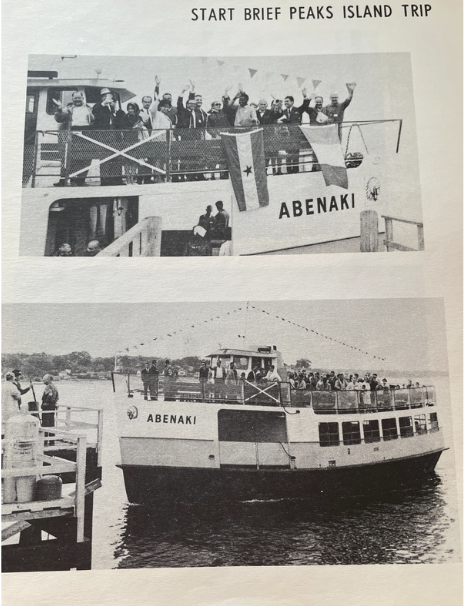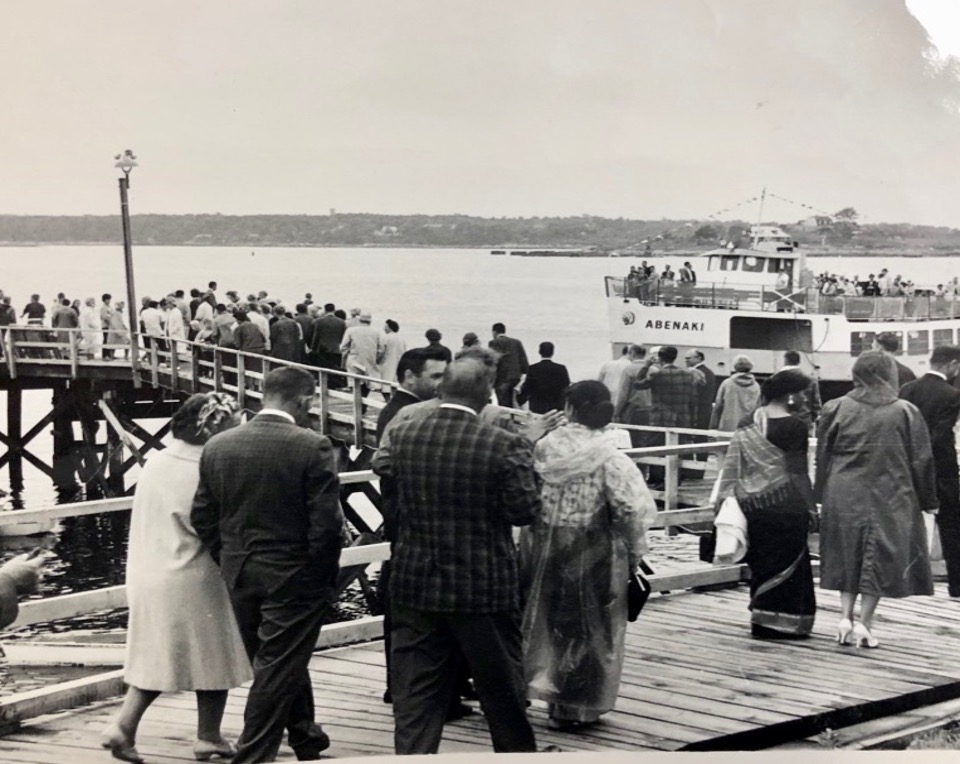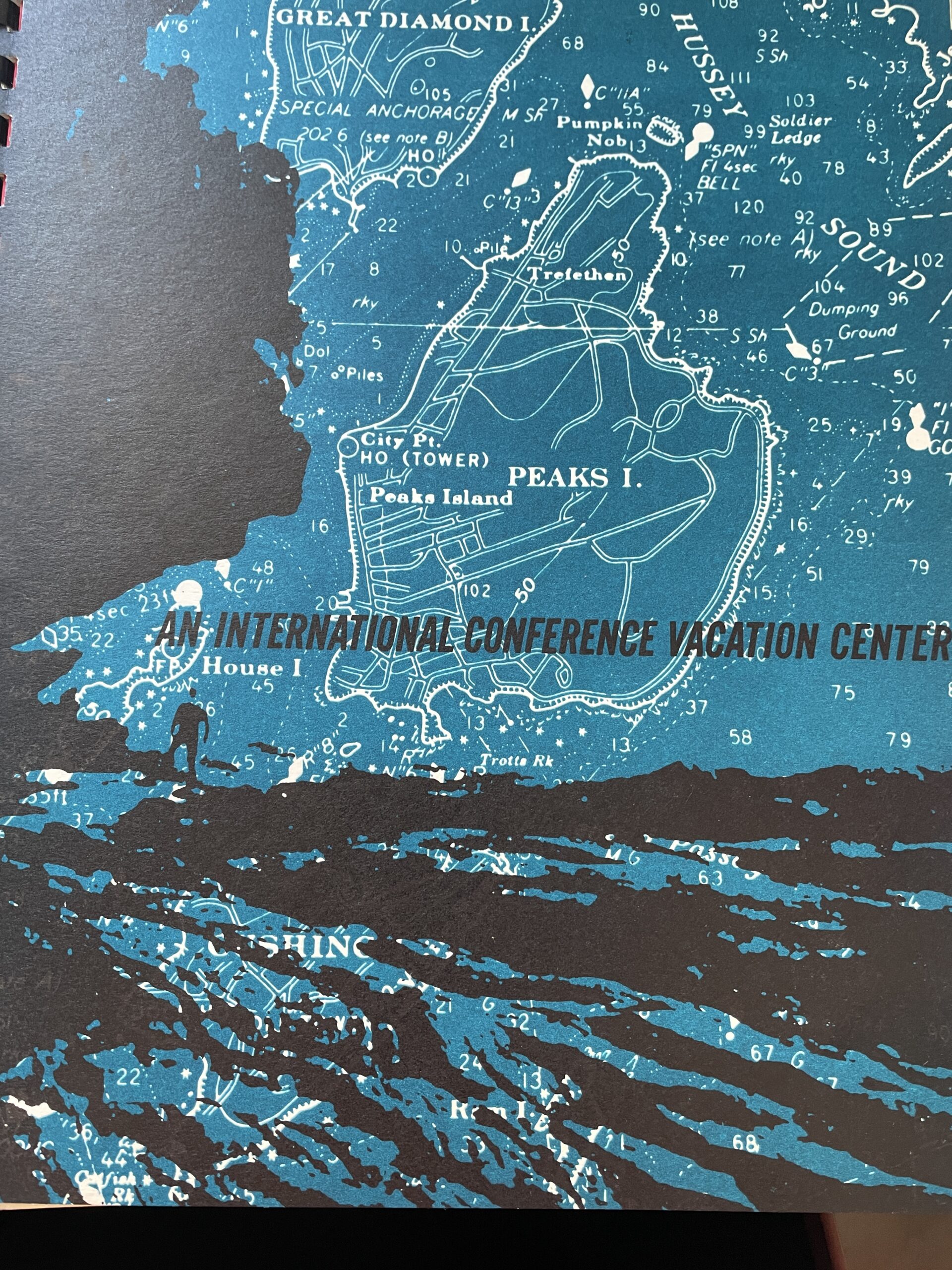Batteries into plowshares and “Downeast Diplomacy”
 The origins of the World Affairs Council of Maine go back to the years following World War II, when a group of Peaks Island residents came up with a vision of converting the island’s abandoned artillery batteries into a conference center dedicated to the pursuit of international peace and understanding. In 1962, the group worked with Governor Reed to launch what became known as a program “Downeast Diplomacy,” by bringing a group of 40 UN correspondents and their families to Peaks Island for home hospitality and cultural exchange. In 1967, Governor Curtis formally endorsed the program after a meeting with UN Secretary General U Thant in New York, and the State Legislature appropriated $5,000 to “develop a facility on Peaks Island which will give people of different national and cultural backgrounds the opportunity to develop a better international understanding by meeting on a people to people basis, pursuing mutual interests together.” For the next several years, the group, lead by Bea Chapman Minott worked to raise funds for the center while continuing to bring international visitors to Maine. While the Center never came to fruition, the idea of fostering international understanding through people-to-people exchange endured. In 1976, the organization moved to the mainland to expand its programming and become more accessible to Mainers interested in international affairs. In 1977, the group formally changed its name to the World Affairs Council of Maine. Since then, the organization and its leadership have upheld the mission to promote understanding and education in international affairs and U.S. foreign policy development and worked to foster peaceful relations and mutual understanding among the nations and peoples of the world through educational programming, cultural exchange, and support for public diplomacy.
The origins of the World Affairs Council of Maine go back to the years following World War II, when a group of Peaks Island residents came up with a vision of converting the island’s abandoned artillery batteries into a conference center dedicated to the pursuit of international peace and understanding. In 1962, the group worked with Governor Reed to launch what became known as a program “Downeast Diplomacy,” by bringing a group of 40 UN correspondents and their families to Peaks Island for home hospitality and cultural exchange. In 1967, Governor Curtis formally endorsed the program after a meeting with UN Secretary General U Thant in New York, and the State Legislature appropriated $5,000 to “develop a facility on Peaks Island which will give people of different national and cultural backgrounds the opportunity to develop a better international understanding by meeting on a people to people basis, pursuing mutual interests together.” For the next several years, the group, lead by Bea Chapman Minott worked to raise funds for the center while continuing to bring international visitors to Maine. While the Center never came to fruition, the idea of fostering international understanding through people-to-people exchange endured. In 1976, the organization moved to the mainland to expand its programming and become more accessible to Mainers interested in international affairs. In 1977, the group formally changed its name to the World Affairs Council of Maine. Since then, the organization and its leadership have upheld the mission to promote understanding and education in international affairs and U.S. foreign policy development and worked to foster peaceful relations and mutual understanding among the nations and peoples of the world through educational programming, cultural exchange, and support for public diplomacy.
 The values of the World Affairs Council of Maine have not changed. We root our work in the ideals of the “Downeast Diplomacy” participants and leader Bea Chapman Minott. We reflect our values of diplomacy, hospitality, and cultural exchange in the practice of our many events and programs that are available to the public.
The values of the World Affairs Council of Maine have not changed. We root our work in the ideals of the “Downeast Diplomacy” participants and leader Bea Chapman Minott. We reflect our values of diplomacy, hospitality, and cultural exchange in the practice of our many events and programs that are available to the public.
